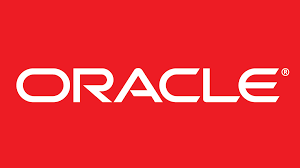Oracle Corporation now joins the ignominious group of Foreign Corrupt Practices Act (FCPA) recidivists. Last week, in a Press Release, the Securities and Exchange Commission (SEC) announced an enforcement action which required Oracle to pay more than $23 million to resolve charges that it violated the FCPA when “subsidiaries in Turkey, the United Arab Emirates (UAE), and India created and used slush funds to bribe foreign officials in return for business between 2014 and 2019.” The recidivist label comes from the sad fact that the SEC sanctioned Oracle in connection with the creation of slush funds.
In 2012, Oracle resolved charges relating to the creation of millions of dollars of side funds by Oracle India, which created the risk that those funds could be used for illicit purposes. This means we have a company using the same scheme, in the same country only two years after the resolution of another FCPA violation. Yesterday, I laid out the broad parameters of the bribery schemes so that compliance professionals could study them in detail to determine if they need to review their programs. Today, we consider the schemes as they were used in the three countries identified in the SEC Order as Turkey, UAE and India.
Turkey
According to the SEC Order, there were three types of bribery schemes in Turkey; the VAD Accounts, the 112 Project and the SSI Deals. Under the VAD Accounts, as discussed yesterday, “Oracle Turkey employees routinely used the slush funds to pay for the travel and accommodation expenses of end-user customers, including foreign officials, to attend annual technology conferences in Turkey and the United States, including Oracle’s own annual technology conference.” These slush funds “were also used to pay for the travel and accommodation expenses of foreign officials’ spouses and children, as well as for side trips to Los Angeles and Napa Valley.”
All of this means that Oracle Turkey was not only engaging in bribery and corruption during the time from the 2012 enforcement action, but carried it on for seven years after the conclusion of the 2012 enforcement action. It was also done with the full knowledge and support of the Turkey country manager. Finally, since at least 2007, it was well known that payment for the travel and accommodation expenses of foreign officials’ spouses and children, as well as payment for side trips made by foreign officials was clear FCPA violation.
112 Project involved an attempt by Oracle Turkey to win a lucrative contract with Turkey’s Ministry of Interior (“MOI”) related to the ongoing creation of an emergency call system for Turkish citizens, the “112 Project”; hence the internal Oracle terminology. 112 Project was designed to appear as a business trip to Oracle’s home office (then in California) related to Oracle’s bid on the project. However, it turned out the trip was a sham to hide boondoggle travel for four MOI officials. The alleged business meeting at the corporate headquarters lasted only 15 minutes and for the rest of the week, the Turkey Sales Representative entertained the MOI officials in Los Angeles and Napa Valley and then took them to a “theme park” (I wonder what ‘theme park’ there could be in the greater Los Angeles area?) Once again, this type of sham travel has long been identified as FCPA violative.
Finally, there were the SSI Deals. These involved the same Turkish Sales Representative as in 112 Project and directed cash bribes to officials at Turkey’s Social Security Institute (“SSI”). This corrupt sales representative had the temerity to maintain a spreadsheet tracking how much potential margin he could create from a discount request six months before he finalized a deal with the SSI in 2016. To fund the bribe payments, he used the VAR Program we previously detailed which claimed a discount was needed to beat the competition. However, the bid was a sole source bid limited to Oracle products.
In another corrupt transaction, once again the same Turkey Sales Representative used another VAR to create a slush fund for SSI officials related to a database infrastructure order. His spreadsheet showed an excessive margin of approximately $1.1 million, only a portion of which was used to purchase legitimate products such as software licenses.
UAE
Using the rather amazing code name of ‘Wallets”, Oracle UAE employees paid for the travel and accommodation expenses of end customers, including foreign officials, to attend Oracle’s annual technology conference in violation of Oracle’s internal policies. As noted in the Order, in 2018 and 2019, an Oracle UAE sales account manager paid approximately $130,000 in bribes to the State-Owned Enterprise’s (SOE) Chief Technology Officer (CTO) to obtain six different contracts over this period. The first three bribes were funded “through an excessive discount and paid through another entity (“UAE Entity”) that was not an Oracle approved VAR for public sector transactions and whose sole purpose was to make the bribe payments. For the final three deals, the UAE Entity was the actual entity that contracted with the UAE SOE despite the fact that Oracle’s deal documents represented an Oracle approved partner as the VAR for the deal.”
India
In perhaps the most incredulous scheme, Oracle India sales employees used an excessive discount scheme for a transaction which was owned by the Indian Ministry of Railways. Oracle India claimed a discount was needed based on competition but “the Indian SOE’s publicly available procurement website indicated that Oracle India faced no competition because it had mandated the use of Oracle products for the project.” Once again, a spreadsheet was made that indicated $67,000 was the “buffer” available to potentially make payments to a specific SOE official. A total of approximately $330,000 was made available for payments and another $62,000 was paid to an entity controlled by the sales employees responsible for the transaction.
Please join me tomorrow where I look back at the 2012 Oracle FCPA enforcement action to see what, if anything, Oracle learned from that sordid tale.


 Caremark with Tom Fox and Jonathan T. Marks
Caremark with Tom Fox and Jonathan T. Marks

